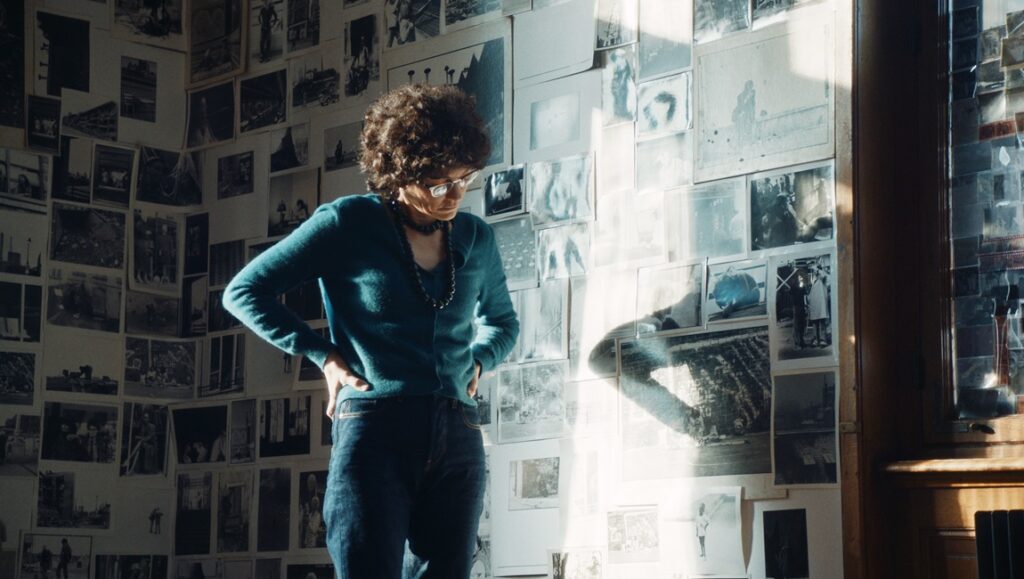In Mona Achache’s Little Girl Blue, actress Marion Cotillard first appears as herself. As Achache gives her a wig, brown-colored contacts, perfume, a cherished necklace, and other such personal effects, her expression remains unreadable. Then, before our eyes, and Achache’s, Cotillard transforms. As a stand-in for Achache’s mother, the late writer and photographer Carole Achache, Cotillard has the difficult task of inhabiting a woman whose death by suicide remains incomprehensible even to those closest to her. It’s not a seamless performance, but rather an evolving work in progress that begins with lip-syncing to Carole’s interviews and develops as the actress becomes fully immersed in the role.
Newly changed, Cotillard picks up a copy of Carole’s novel Fille de — in which, as we are later told, the author “tenderly and violently describes her mother, and the life she had with her.” “You’re doing exactly what she did. You’re investigating your mother,” Cotillard notes. Achache reveals it all goes back a generation further: her grandmother, Monique Lange, also wrote a book about her mother. As the daughter of a well-connected writer and editor, Carole grew up in privilege, surrounded by many of France’s leading intellectual figures, but her childhood was also marked by years of sexual abuse. As a young adult, she engaged in heavy drug use and sometimes took on sex work to survive. Carole’s later family life, as shown in the film through photographs and home videos, was relatively settled, but her writing addressed her feeling “disfigured inside.”
In some ways, Achache’s filmmaking approach is similar to that employed in Martha Coolidge’s astonishing Not a Pretty Picture (1976), except, rather than re-enacting episodes from her own recollection, the director draws from a meticulous archive of written and audio recordings to reconstruct her mother’s point-of-view. Within its metanarrative, the film acknowledges that this is not a perspective that can ever truly be knowable — both Achache’s father and Cotillard question her efforts to resurrect her mother in this way — and yet, it’s not hard to understand why Achache would be driven to this investigation.
Among the film’s first images are words from a document on Carole’s computer: “Who will read what I’ve written in the depths of this folder… why is there always this hope of being understood after my death?” With generosity and respect, Little Girl Blue attempts to fulfill this innate desire to be known. However, as much as it is a loving tribute, Little Girl Blue is also an aching self-portrait. At certain points, narration is delivered in the second person, with Mona Achache making us privy to an intimate dialogue between her and her mother. In the most heartbreaking of these moments, the director reveals that she, like her mother and grandmother before her, was a victim of sexual abuse: “I tell you about it, you collapse and tell me that you knew it would happen to me, that it had happened to you too.” There are no simple answers or justifications, but Little Girl Blue ends on a note of acceptance — the image of Achache and her mother side-by-side on a beach — and it’s clear that the bond between them will live on.
Originally published as part of Rendez-Vous with French Cinema 2024.


Comments are closed.